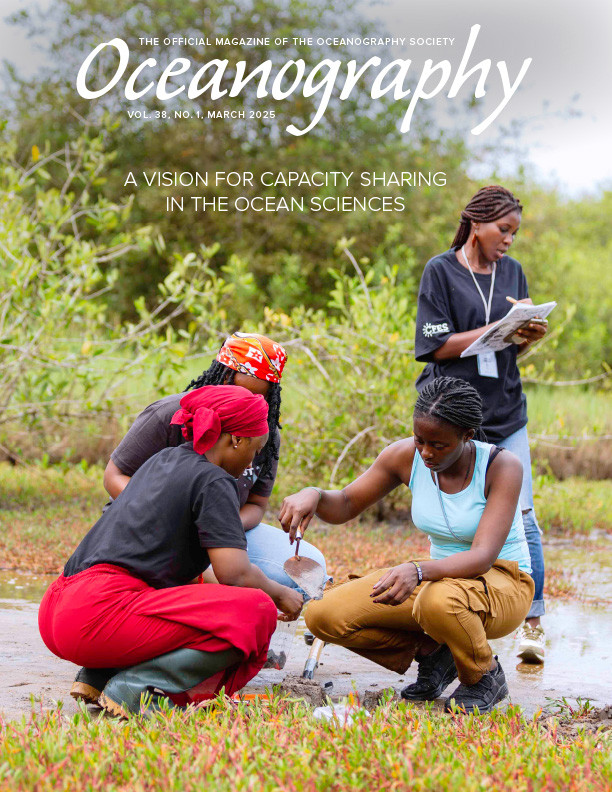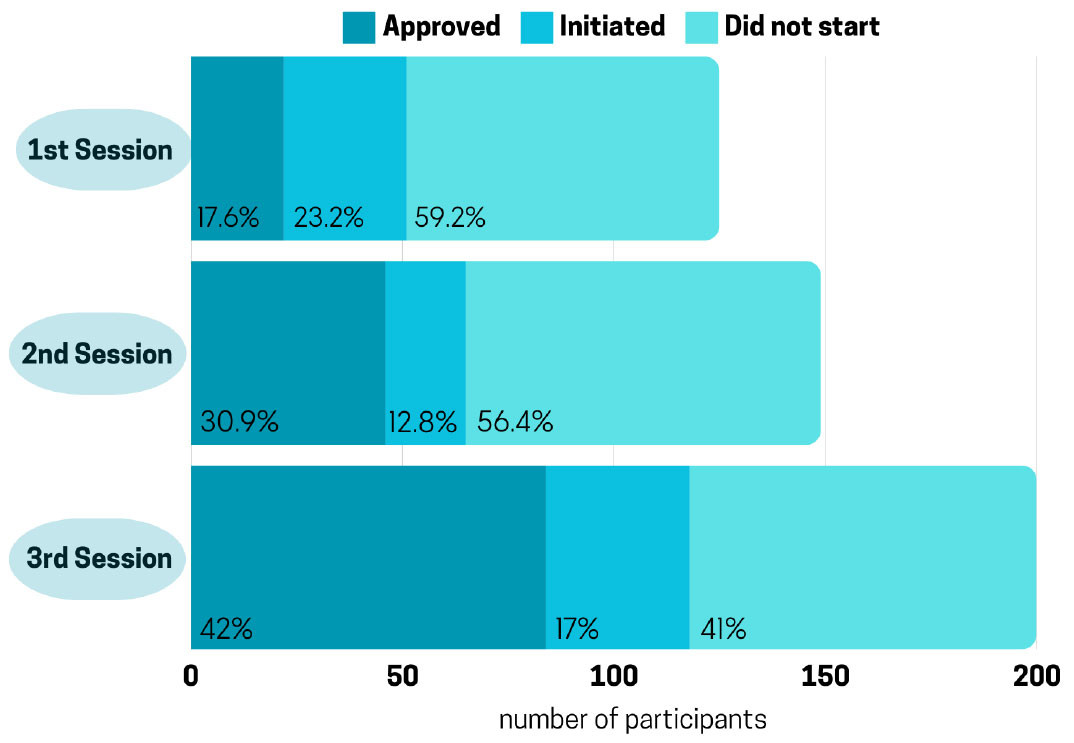Full Text
Introduction
Marine litter represents a critical environmental challenge that reflects systemic unsustainability. It calls for a reexamination of social structures, resource management, materials life cycles, consumption patterns, waste production, and strategies to manage debris (Scrich et al., 2024). With far-reaching socioeconomic and ecological impacts that threaten human health, coastal livelihoods, and marine biodiversity (GESAMP, 2015, 2020), nations must prioritize marine litter mitigation (Lau et al., 2020)—an imperative reinforced by the United Nations Decade of Ocean Science for Sustainable Development (2021–2030). In response, courses such as those among the Massive Open Online Courses (MOOCs) offered by the United Nations Environment Programme (UNEP) and the Global Partnership on Plastic Pollution and Marine Litter (GPML) have become vital tools for effective capacity building and knowledge sharing. They empower stakeholders to implement sustainable solutions and provide a path for overcoming global challenges and achieving long-term sustainability (IOC-UNESCO, 2020).
Aligned with the United Nations 2030 Agenda for Sustainable Development, more specifically with Sustainable Development Goal (SDG) 4.7 (ensuring that all learners acquire the skills needed to promote sustainable development), these online courses help participants develop context-based solutions to reduce marine pollution (Harden-Davies et al., 2022; Löhr et al., 2024). The success of such capacity-building efforts depends on strong participant engagement and the influence of power structures on capacity development and evaluation mechanisms (Singh et al., 2021).
Our commitment to education and knowledge transformation motivated us to deliver online courses about marine litter to public managers at subnational levels across Brazil. The goal was to democratize access to critical insights in order to transform environmental challenges into actionable opportunities. Central to this initiative is the Clean Ocean Network (Rede Oceano Limpo), a Brazilian science-policy movement established in 2022 to foster governance arrangements and processes to support public policies against marine litter. The Clean Ocean Network’s efforts have expanded from São Paulo to other coastal states by fostering collaboration among multi-sector stakeholders in order to produce state-specific strategies. The online course bridges science and management to support regional diagnoses and development of tailored institutional and local context responses.
Method
The course “Marine Litter: From Understanding to Solution,” organized by the UNESCO Chair for Ocean Sustainability and partners, has been offered since 2020 free of charge and certified by the University of São Paulo and suitable for diverse audiences. It fosters critical reflection on marine litter sources, impacts, and mitigation strategies. The online learning platform Moodle is used to deliver video lectures, assessments, and assignments supported by instructional and bibliographic resources. Tailored for the Clean Ocean Network to develop marine litter management strategies at subnational levels, the course was primarily adapted for public managers, yet remained open to professionals from other sectors. Between 2023 and 2024, three sessions were offered, each featuring a weekly schedule of 15 classes across four modules (ocean importance and threats, marine litter complexity, addressing marine litter, and public policies on marine litter) and encouraging active rather than passive engagement of participants.
Participant engagement was systematically tracked, allowing for ongoing adjustments based on qualitative and quantitative analyses to identify strengths and areas for improvement in the online capacity-building process. Analysis of registration, participation, and assignment data allowed us to assess genuine engagement beyond mere enrollment. Quantitative measures included enrollment records, task completion rates, responses to initial and post-course surveys, participation in live sessions, and submissions of the final assignment form, while qualitative insights were drawn from survey responses and moderator experiences. Notably, the final assignment form was adapted from a problem-based learning approach—a participant-centered method that encourages exploration of real-world issues and fosters active learning and critical thinking. In addition to deepening participants’ reflections on lessons and literature, the final assignment aimed to identify state-level contexts and challenges related to marine debris, providing valuable insights for potential public policies and future collaborative actions with the Clean Ocean Network.
Results and Discussion
- Overall Student Profile. Across the three sessions, the course recorded 474 enrollments—including 35 re-enrollments—with participant ages ranging from 18 to 76. The largest groups were aged 35–44 (34.8%) and 25–34 (25.3%), and women comprised 65% of the participants. Most (77.8%) worked in public management, and the rest were engaged in education, the private sector, or nongovernmental organizations, or were students. Nearly half (49.4%) completed the initial survey.
- Completion and Engagement Rates. Despite outreach efforts, over 40% of registered participants never accessed the platform, and at least 12.8% actively dropped out—a common challenge in online education. Nevertheless, approval rates improved from 17.6% in the first session to 30.9% in the second, and further to 42% in the third, reflecting the impact of targeted follow-up and course adjustments (Figure 1).
- Course Adjustments and Interventions. Low initial engagement, particularly in live lectures (17.6% attendance), prompted the implementation of individual follow-ups, extended deadlines, and motivational emails during the first session. Based on post-course survey feedback, subsequent sessions introduced workload redistribution, schedule flexibility, early material release, and reconfiguration of live activities. In the last session, the course was also divided into a Complete Cycle and a Basic Cycle to better accommodate varying participant availability, resulting in improved engagement and completion rates. These results also underscore the importance of continuous monitoring and adaptive strategies in online capacity building to effectively address challenges in marine litter management.
- Impact and Capacity Building of Public Managers. A key observation was the course’s effectiveness in reaching its primary target—public managers from the states comprising the Clean Ocean Network. Among the 152 approved participants, 55.2% were public managers from states within the network, 16.4% were from other states, and 28.2% were professionals from other sectors. Public managers exhibited notably lower dropout rates (approximately 50% for participants located in both Clean Ocean Network or other states), demonstrating greater commitment and sustained engagement. Moreover, nearly half (48.7%) of the 98 final assignment submissions were from public managers, including 11.2% actively engaged in working groups within the network. These results underscore significant capacity building gains: participants’ self-ratings of subject matter knowledge as “good” or better improved from 50.4% pre-course to 92.2% post-course.
|
|
Lessons Learned
Enhanced capacity among public managers is crucial for transforming power structures and advancing effective marine litter policy. The project’s structured framework, which connects course content to broader, tangible goals such as participatory public policy development and active involvement in an emerging network, appears to have played a pivotal role in motivating participants, especially those from states already in or aiming to join the network. This approach fosters sustained engagement in large-scale processes, thereby reinforcing the course’s capacity building objectives and its potential to drive meaningful policy change.
Lessons learned from the iterative development of the course indicate that enhanced communication and flexibility are key to improving engagement and completion rates. The use of instant messaging groups, individual follow-ups, synchronous student meetups, and flexible deadlines, coupled with the simultaneous release of course materials, effectively countered low engagement. Rebalancing the course structure enabled participants to progress more steadily and at their own pace, contributing to overall improvements in completion.
As a key tool in Clean Ocean Network’s capacity building for the Ocean Decade, these refinements have enhanced outreach and equipped public managers with critical knowledge to address local challenges against marine litter. Continuous monitoring and adaptable strategies remain essential to optimize resources and maintain engagement in the network’s goals (Harden-Davies et al., 2022). Furthermore, the initiative supports the 2030 Agenda by addressing marine-related SDGs and SDG 4.7 (see Löhr et al., 2024), and by linking the Clean Ocean Network with GPML, it expands its reach through courses tailored to underrepresented contexts in Latin America, promoting practical, context-based learning for effective policymaking.
While the course showed promising capacity-building gains, inherent challenges of online education, such as high dropout rates and difficulty tracking long-term engagement, limit our findings. Future research should incorporate longitudinal policy assessments and explore alternative course formats to improve retention and measure lasting impacts on marine litter policy.
Acknowledgments
The project “Fostering Science-Based and Participatory Governance Processes to Address Marine Litter in Brazil” is a partnership between the Brazilian Fund for Biodiversity (FUNBIO) and the UNESCO Chair for Ocean Sustainability (Institute of Advanced Studies and Oceanographic Institute, University of São Paulo), funded by the Norwegian Embassy. AT thanks the Brazilian National Council for Scientific and Technological Development for a scholarship grant (310553/2019-9; 316837/2023-7).


